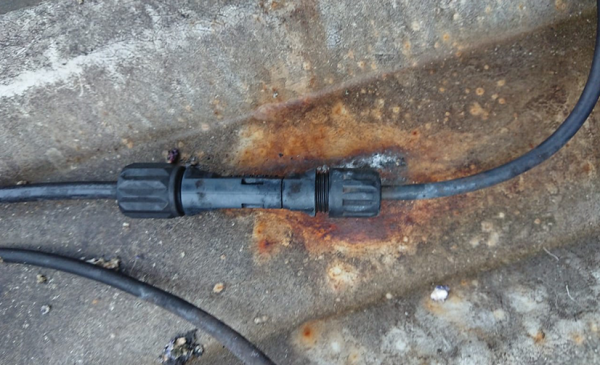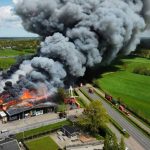We are pleased to announce the RC62: Recommendations for fire safety with PV panel installations: The Joint Code of Practice for fire safety with photovoltaic panel installations, with focus on commercial rooftop mounted systems, has now been published.
Helios’ Director Robert Harley has lead the process, with document written by James Hoare CEng FIET FEI, arguably one of the UK’s most senior PV technical experts and jointly funded by the MCS, the UK’s foremost renewable energy standards organisation, and the Fire Protection Association (FPA).
With PV being one of the fastest growing, most reliable, and most adaptable forms of electricity generating technology available. The incidence of fires involving PV systems is very low. However the addition of a PV system which is not correctly designed, installed, or maintained could – like any electrical service – add to the overall risk of fire. As the installation and use of such systems increases, the number of incidents may also increase, especially if systems are not designed and installed to the relevant standards or they are not regularly and properly maintained.
This revised RC62 document has been prepared to provide an updated practical guide for insurers and their clients on the requirements for the procurement, ownership, operation, and maintenance of safe and efficient PV systems. The focus of the recommendations in this document are on larger commercial and industrial rooftop PV systems but much of the guidance has relevance to PV systems in general.
As some installers have not been overly diligent in ensuring that their installations meet all of the required regulations, this guide highlights a number of these important regulations.
Below are a few key points to consider.
What is it?
Essentially, it’s a guide that references how all solar PV systems should be designed, installed, commissioned, maintained and de-commissioned to ensure that the correct processes are followed so that your solar PV system safely and efficiently generates electricity.
The guide references many existing regulations that should already be being followed.
Unfortunately, some installers haven’t been overly diligent in ensuring that their installations meet all the required regulations.
Who’s it by?
The process has been led by Robert Harley, Director of Helios Solar Operations & Maintenance Ltd, with the document having been written by James Hoare CEng FIET FEI, arguably the UK’s most senior PV technical expert.
The writing of the document has been jointly funded by the Fire Protection Association and the UK’s foremost renewable energy standards organisation, the MCS.

How will it affect me?
If your original installer is still trading and they are already complying with the correct quality standards then you shouldn’t be affected at all.
However, if you, or they, have or are not complying with the correct design, installation and maintenance guidelines then in the event of an insurance claim from a fire caused by your solar PV system, you may not have insurance cover.
This has already resulted in uninsured losses of over £800,000 in the past (farmhouse in Devon).

What do I need to do?
You’ll already know if you have your solar PV system tested and inspected annually and whether you get a comprehensive report with any recommendations.
Helios Solar Operations & Maintenance Ltd have been instrumental in the development of the UK’s testing and inspection guidelines that have been recommended by the trade body Solar Energy UK and the MCS and we can provide you with these services together with a comprehensive report on the current condition of your solar PV system from both a safety and performance perspective.
Helios also carry out additional series resistance testing that isn’t in current guidelines but will be a requirement of the new Joint Code of Practice. Series resistance testing allows Helios to identify potential hazards before they pose a fire risk.
Contact Helios today
Helios are ready to take your enquiry today and help you with any questions that you may have.
You can call us on 01525 664665 or email robert@helios-om.com and we’ll provide you with helpful advice.
You can also make an enquiry via www.helios-om.com

Incorrectly installed DC connectors – a major cause of solar PV related fires
(the corrosion is due to the direct current leaking into the surrounding area)




